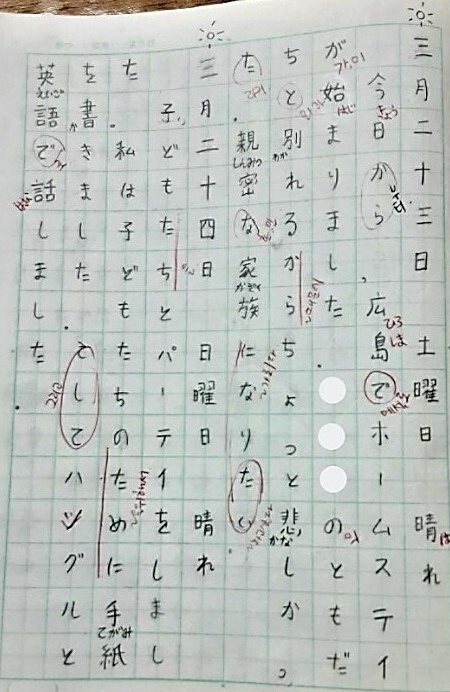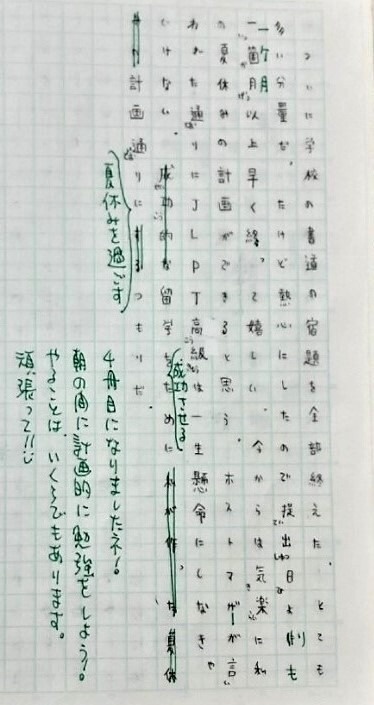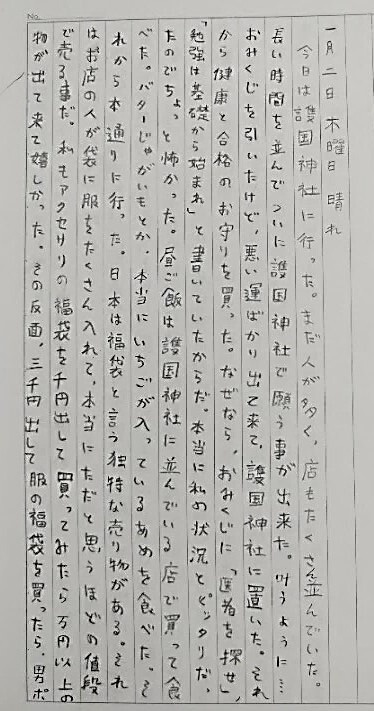Keeping a Foreign-Language Diary (2): A Sample Japanese Diary and the Advantages of Diary-Writing
In “Keeping a Foreign-Language Diary (1): How to Keep a Diary in Japanese,” I talked about keeping a diary in your target language. Here, I will show you some photographs of my Japanese diary. I will also discuss some of the ways keeping a diary in Japanese benefited me.
A sample Japanese diary
Figures 1, 2, and 3 are photographs of my onetime Japanese diary. You can see at a glance how much my Japanese writing changed.
These are my first Japanese diary entries.

Figure 1: March 23, March 24 entries
I hardly knew any Japanese at all at the time, so my host mother helped me figure out what to write. The sentences are very simple.
The text in red was added by me after finishing the diary entries. I wrote down the meaning of words I didn’t know (in my native language) as well as their pronunciation.
This is about four months after I began writing a diary in Japanese.

Figure 2: July 29 entry
The lines are a little closer together than in Figure 1, and the content has more or less doubled in length. But it still needed checking: you can see my host mother’s corrections and comments in green.
This is about five months after Figure 2, or about nine months after Figure 1.

Figure 3: January 2 entry
In Figures 1 and 2, I was writing one character in each square, but here the lines are still closer together and the content is much longer. It was around this time that I began to keep the diary on my own, without having anyone correct it for me.
How keeping a diary benefited me
1) Japanese study
I was able to practice writing hiragana, katakana, and kanji. In particular, I managed to memorize a lot of kanji. Keeping a diary turned out to be a natural way to acquire Japanese expressions, grammar, and vocabulary. I learned to use written as well as spoken language. I learned to write essays in Japanese on my own.
2) Daily life
I had a chance to look back and reflect on each day. I was able to write down things I couldn’t say to anyone else, relieving stress. The diary created opportunities to communicate with the people who corrected it for me. In particular, when I was just starting to learn Japanese, the diary was sometimes the only way I could communicate with the people around me.
Moreover, this diary brings back the feelings and memories of that time for me whenever I reread it.
I hope everyone here will start keeping a diary in a language of your choice from today. You will find that it will become a treasure for you.